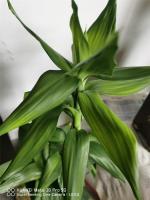When to Plant Tomatoes in Zone 9b
Tomatoes are a popular vegetable to grow in home gardens and are a staple in many dishes. However, knowing when to plant tomatoes in your area can be crucial to a successful harvest. Zone 9b is a region that experiences mild winters and hot summers, which affects the best time to plant tomatoes. In this article, we will discuss the ideal time to plant tomatoes in Zone 9b, as well as some helpful tips for a productive growing season.
Spring Planting
Tomatoes are warm-season plants that require warm soil and air temperatures to grow and produce fruit. In Zone 9b, the ideal time for planting tomatoes is in the spring, after the threat of frost has passed. Generally, this occurs in late February or early March. However, it is essential to monitor the weather conditions, as a late-season frost can damage or kill tomato plants.
When planting tomatoes in the spring, it is crucial to prepare the soil by adding compost or other organic matter to improve soil quality and drainage. Tomatoes require well-drained soil and benefit from a pH level of 6.0 to 6.5. Additionally, planting the tomato seedlings deep in the soil and burying a portion of the stem can help promote a strong root system and support the plant as it grows taller.
Fall Planting
In Zone 9b, fall planting can also be a viable option for growing tomatoes. The fall season provides cooler temperatures and less intense sunlight, which can be beneficial to tomato plants' growth and fruit production. The ideal time to plant tomatoes for a fall harvest is in mid to late August, ensuring that the plants have enough time to mature before the first frost.
Preparing the soil is just as important in the fall as it is in the spring. Adding compost and other organic matter can help improve soil fertility and drainage. Additionally, mulching around the plants can help retain moisture in the soil, especially during the drier fall months.
Other Growing Tips
In addition to planting at the right time, there are other helpful tips for growing tomatoes in Zone 9b. Adequate watering is crucial to tomato plants' growth, especially during the hotter summer months. Tomatoes require approximately one to two inches of water per week, depending on the weather conditions.
Fertilizing tomato plants can also promote healthy growth and fruit production. However, it is essential to avoid over-fertilizing, as this can result in excessive foliage growth and reduce fruit production. Using a balanced fertilizer or organic matter, such as compost, can provide the necessary nutrients for tomato plants to thrive.
Finally, monitoring for pests and diseases is necessary to ensure a healthy tomato crop. Common pests that can affect tomato plants include aphids, tomato hornworms, and spider mites. Additionally, diseases such as blight and wilt can impact tomato plants' growth and fruit production. It is essential to identify and treat any issues promptly to prevent further damage.
Conclusion
Knowing when to plant tomatoes in Zone 9b is crucial to a successful harvest. Spring and fall are both viable options for planting, and preparing the soil and providing adequate water, fertilization, and pest management are key to growing healthy tomato plants. By following these tips, you can enjoy a bountiful harvest of fresh tomatoes from your home garden.

 how many times do yo...
how many times do yo... how many planted tre...
how many planted tre... how many pine trees ...
how many pine trees ... how many pecan trees...
how many pecan trees... how many plants comp...
how many plants comp... how many plants can ...
how many plants can ... how many plants and ...
how many plants and ... how many pepper plan...
how many pepper plan...

































